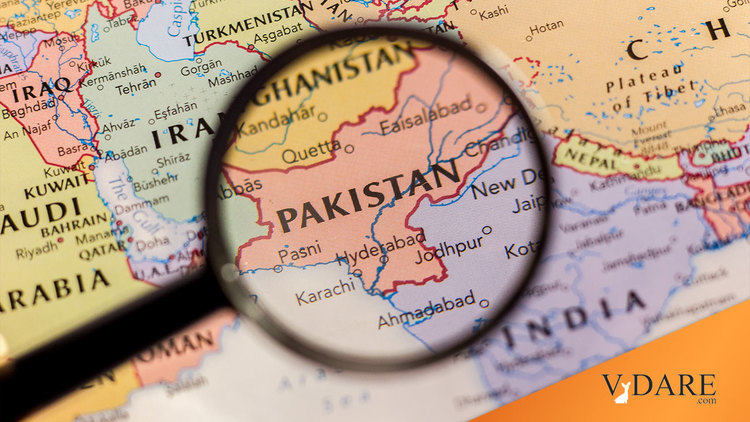
03/20/2014
When the Navy Seals executed Osama bin Laden in his big house near the Pakistani military academy in 2011, my instant reaction was that the Pakistani state must have known and therefore had been hiding him. After awhile though, the Obama Administration started to assert that all that evidence the Seals took home from Osama’s office showed that the Pakistani government didn’t know anything. But that’s misleading:
By Carlotta Gall
New York Times, MARCH 19, 2014
In trying to prove that the ISI [Pakistan’s main intelligence service] knew of Bin Laden’s whereabouts and protected him, I struggled for more than two years to piece together something other than circumstantial evidence and suppositions from sources with no direct knowledge. Only one man, a former ISI chief and retired general, Ziauddin Butt, told me that he thought Musharraf had arranged to hide Bin Laden in Abbottabad. But he had no proof and, under pressure, claimed in the Pakistani press that he’d been misunderstood. Finally, on a winter evening in 2012, I got the confirmation I was looking for. According to one inside source, the ISI actually ran a special desk assigned to handle Bin Laden. It was operated independently, led by an officer who made his own decisions and did not report to a superior. He handled only one person: Bin Laden. I was sitting at an outdoor cafe when I learned this, and I remember gasping, though quietly so as not to draw attention. (Two former senior American officials later told me that the information was consistent with their own conclusions.) This was what Afghans knew, and Taliban fighters had told me, but finally someone on the inside was admitting it. The desk was wholly deniable by virtually everyone at the ISI — such is how supersecret intelligence units operate — but the top military bosses knew about it, I was told.
I’m increasingly coming around to assuming that most of the most interesting skullduggery in international affairs is carried out not by lone wolves and the like, but by guys with offices and white boards and pensions: i.e., present or past government officials.
Was sheltering bin Laden an operation by "rogue elements" within ISI? I've long argued that a frequent corollary to the deep state is the peak state — i.e., the power behind the throne usually turns out to be the guy sitting on the throne (e.g., in Pakistan when bin Laden arrived, the military dictator was Pervez Musharraf). After all, that’s why he clawed his way to the top: because he wants to be the guy who makes the big decisions.
This is a content archive of VDARE.com, which Letitia James forced off of the Internet using lawfare.